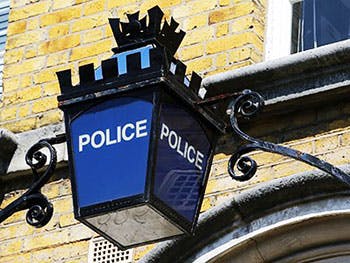EXPERT COMMENT LAST UPDATED : 14 JUNE 2018

Birmingham City University criminologists Professor Elizabeth Yardley, Professor David Wilson and Emma Kelly discuss the government’s announcement of plans to fast-track graduates to the role of detective in police services across England and Wales.
The proposed scheme aims to recruit 1,000 additional detectives over the next five years. Recruits will undergo a two-year training period and could potentially be working on real, live cases after a mere 12 weeks.
The scheme, announced this week, has been developed in response to a significant shortfall in the number of serving detectives. There are around 5,000 fewer investigators than needed at present.
The moves have been heavily criticised by Karen Stephens, the secretary of the Police Federation’s National Detective Forum, who stated: “This news is an insult to the experienced hard-working detectives that we have left in service”.
Clearly it’s important to recruit more detectives when there are critical shortages in numbers. However, before this happens, shouldn’t we be asking why there is a shortfall in the first place? Why are fewer people choosing to go into policing? Why are fewer uniformed police officers not wanting to make the transition to detective work?
Speak to detectives and you’ll soon find out why. We’ve worked with and trained students who have gone on to become some of the best detectives in England and Wales. They will tell you the real story. Weeks at a time without a day off. Passing your partner in the hallway occasionally as you pop home for 15 minutes to get a shower and a change of clothes. Working at the coalface of other people’s trauma. Seeing the lives of good people fall apart because of the selfish choices of others. Low morale. Stress. Exhaustion. Despondency when the case you’ve worked so hard on for months or years is dropped by the Crown Prosecution Service because it’s not judged as enough of a sure thing to result in a conviction – in corporate speak, it won’t deliver a return on investment.
Being a detective is a hard slog. It’s also often a thankless job.
The slow creep of private sector practices has enveloped the police service in the fog of late capitalism. The 2001 demise of Enron as a result of fraud, greed and corruption that brought in a raft of bureaucratic regulation may feel like a world away from the incident room, but the impact of that particular crash has trickled its way into our public services. Detectives are now subject to paranoia-inducing performance management measures and considerable limits on their discretion. They have unimaginable workloads and find themselves having to create mile-long audit trails. All of this is fuelled by the belief that we can’t actually trust people to do their jobs anymore.
But being a detective isn’t just a job. The detectives we know see it as a vocation, a calling, an identity. They have a commitment to justice, to doing the right thing, protecting the vulnerable, standing up for those who can’t stand up for themselves. And that’s just the beginning, it takes many years to develop the expertise to turn these honourable motivations into skills and practices that make a positive difference to people’s lives.
Making detective work seem more attractive is not about a marketing scheme premised on how quickly you can get into it. It’s about recognising the value of this work and the difference it makes to society. That begins with acknowledging the incredible people who are already doing the job in the most difficult of circumstances. Detectives are often the unsung heroes of the criminal justice system. The emphasis occasionally placed in recent years on more uniformed officers – in between brutal budget cuts – has been a good PR move, creating nice photo opportunities and stoking politicians’ egos. However, we’ve neglected those who are invisible – often working in the shadows and behind the scenes – the detectives.
This new fast-track scheme may mean that we get more detectives, but we run the risk that we get more of the wrong kind of detective; the consumer capitalist detective with a sense of entitlement and a narcissistic streak. This echoes the concerns we expressed around the fast-track training for private sector prison officers introduced in recent years too – which takes an average seven to nine weeks.
Working with people who are affected by crime is one of the most important jobs in our society, but if we get this wrong, we risk doing more harm than good. We need to be very careful indeed.
Find out more about courses in criminology at Birmingham City University's Open Day on Saturday 30 June.